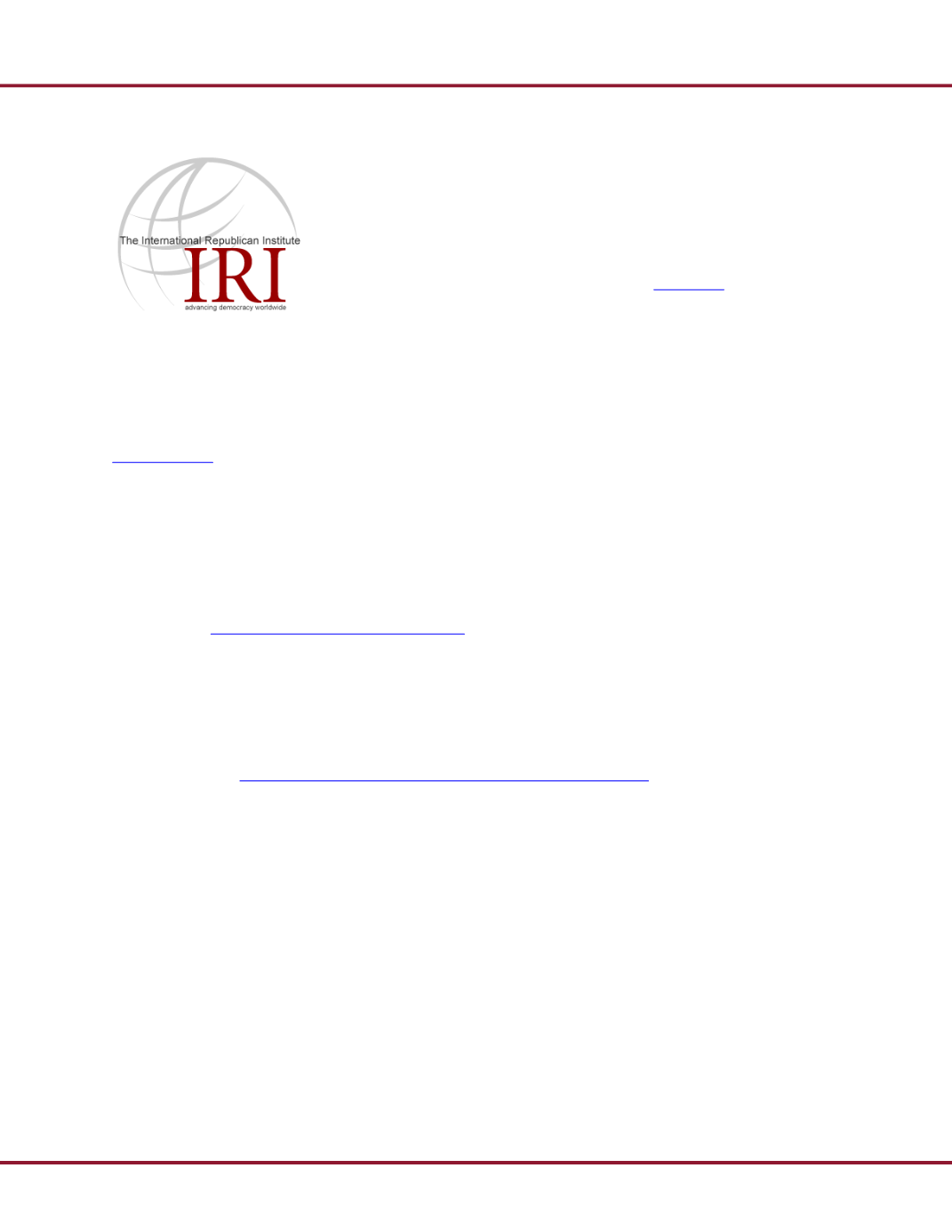
2013
Jordan Parliamentary Elections
50
IRI Preliminary Statement on Jordan’s Parliamentary Elections
For Immediate Release
January 24, 2013
Contact: Lisa Gates
International Mobile: +1-202-572-1546
Jordan Mobile: +962 (0)79 840 4417 (Jan. 18-26)
Electoral Administration, Environment Improve;
Electoral Framework Continues to Fall Short
Amman, Jordan
– On January 23, 2013, Jordanians went to the polls to choose a new parliament in
an election that was an important step toward building Jordanian voters’ trust in election
administration. And while improved Election Day procedures, carried out under the supervision of
Jordan’s ne
(IEC), underscore a more transparent process, the
electoral framework continues to fall short.
Elections are a process, which include the campaign period, Election Day, ballot counting,
adjudication of complaints and acceptance of results. The electoral process cannot be separated
from the political and legal framework within which it operates. For democracy to advance in
Jordan, inequities in the election law must be addressed, such as districting that does not treat all
votes equally. In
IRI noted “the system of
districting does not ensure equitable representation for all Jordanians. The over-representation of
rural districts is accentuated by the controversial single non-transferable vote system [SNTV], thus
further diluting the representation of urban voters.”
Reforms instituted under the new electoral law do not sufficiently address these inequalities. The
addition of national list seats (27 out of 150 seats) elected by proportional representation did little to
steer Jordan towards the development of national political parties founded on common platforms.
Addressing such shortfalls is needed for a more empowered parliament built on political parties to
come to fruition.
Despite this, Jordan’s 2013 elections were a step forward from the country’s 2010 elections due
largely to the establishment of the IEC. The International Republican Institute’s (IRI) delegation,
which was deployed in all 12 governorates and observed at more than 175 polling stations, found
election officials to be well-trained and knowledgeable about their roles, willing to engage with
observers and accessible at all levels. The IEC took important steps toward establishing itself as an
impartial election management body by improving the voters’ list, carrying out efficient candidate
International
Republican Institute
1225 Eye St., NW, Suite 700
Washington, D.C. 20005
(202) 408-9450
(202) 408-9462
fax


